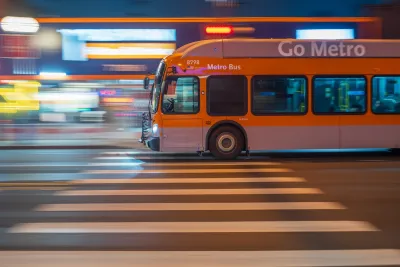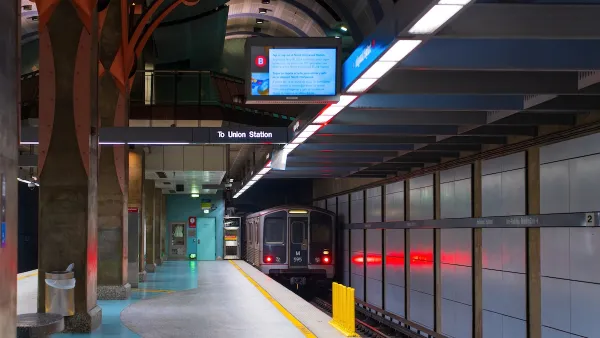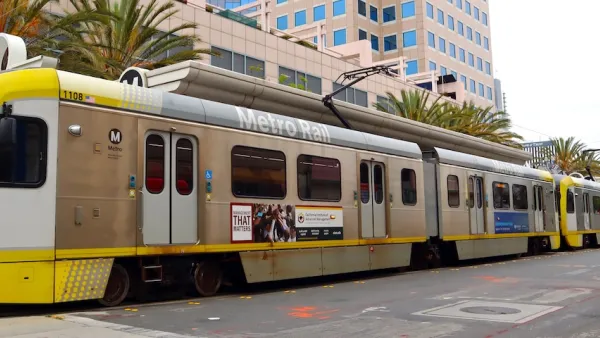The city distributed a monthly $150 transportation subsidy to 1,000 low-income Angelenos. It dramatically improved their lives.

Los Angeles residents who were awarded a $150 monthly transportation stipend say the program helped them improve their mobility, making a major impact on their lives during the one-year pilot program.
“The Mobility Wallet Program gave 1,000 residents in South L.A., all of which are considered low-income and describe themselves as persons of color, a $150 monthly stipend on a pre-paid debit card to pay for transportation services,” explains Travis Schlepp for KTLA.
Ultimately, during the duration of the one-year pilot program, participants experienced an increase in quality of life due to reduced stress, deeper connections with their closest friends and families, and a sense of independence they previously hadn’t enjoyed. Their mental health improved, and evidence suggests their physical health was positively impacted as well.
The cards were valid on local public transit as well as Amtrak, Greyhound, ride-hailing apps, and bike and scooter rentals. Program participants say the subsidy saved them money they were able to use for other essentials. Women who received the cards said they felt safer since they were able to take Lyft or Uber rides at night. “Now that the program has concluded, the stress of those financial burdens has returned, researchers found.”
A second phase of the program will distribute cards to 2,000 participants in the South LA pilot zone and throughout Los Angeles County.
FULL STORY: Hundreds of L.A. residents were given monthly stipends for transportation. Here’s what happened

Maui's Vacation Rental Debate Turns Ugly
Verbal attacks, misinformation campaigns and fistfights plague a high-stakes debate to convert thousands of vacation rentals into long-term housing.

Planetizen Federal Action Tracker
A weekly monitor of how Trump’s orders and actions are impacting planners and planning in America.

In Urban Planning, AI Prompting Could be the New Design Thinking
Creativity has long been key to great urban design. What if we see AI as our new creative partner?

King County Supportive Housing Program Offers Hope for Unhoused Residents
The county is taking a ‘Housing First’ approach that prioritizes getting people into housing, then offering wraparound supportive services.

Researchers Use AI to Get Clearer Picture of US Housing
Analysts are using artificial intelligence to supercharge their research by allowing them to comb through data faster. Though these AI tools can be error prone, they save time and housing researchers are optimistic about the future.

Making Shared Micromobility More Inclusive
Cities and shared mobility system operators can do more to include people with disabilities in planning and operations, per a new report.
Urban Design for Planners 1: Software Tools
This six-course series explores essential urban design concepts using open source software and equips planners with the tools they need to participate fully in the urban design process.
Planning for Universal Design
Learn the tools for implementing Universal Design in planning regulations.
planning NEXT
Appalachian Highlands Housing Partners
Mpact (founded as Rail~Volution)
City of Camden Redevelopment Agency
City of Astoria
City of Portland
City of Laramie





























